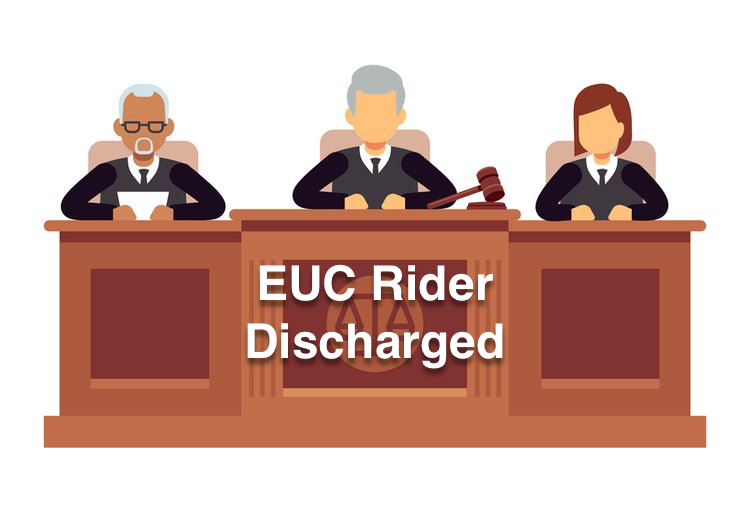In recent years, electric unicycles have taken the UK by storm. These one-wheeled, self-balancing marvels are quickly becoming a popular mode of transportation, especially for urban dwellers. However, as the popularity of these devices soars, so too do questions surrounding the legalities of riding and owning them.
Introduction to Electric Unicycles
Electric unicycles are battery-powered, single-wheeled devices that riders stand on and control using body movements. They can reach impressive speeds and offer a fun, eco-friendly way to travel short distances. Despite their rising popularity, they still inhabit a grey area in terms of UK transportation laws. Understanding the legal landscape is essential.
Current Electric Unicycle UK Law
Privately owned electric unicycles (including Electric Scooters and Electric Skateboards) in the UK is governed by the Road Traffic Act 1988, section 34 and the Highway Act 1835, section 72.
Electric unicycles are legal to ride in the UK on private land with the land owners permission only. Privately owned electric unicycles are not explicitly permitted on public roads, cycle lanes or pavements.
Electric unicycles also fall outside the scope of the Electrically Assisted Pedal Cycle (EAPC) regulations. This is because they lack pedals and don't meet the necessary specifications.
In essence, electric unicycles occupy a legal grey area in the UK, with riders potentially facing fines, confiscation or penalties for using them in public spaces.
I’ll come back to this “Grey Area” further in this post.
Electric Unicycle Law Classification: EAPC Rules
To better understand the legal status of electric unicycles, it's helpful to examine EAPC regulations. These rules apply to electric bikes, which have a certain degree of legal recognition in the UK. EAPCs must meet the following criteria:
Be fitted with pedals capable of propelling the bike
Although it can be argued that pedals on electric unicycles do propel the device through leaning forwards, UK law enforcement also argue it’s the motor propelling the device, not the pedals.
Have a maximum power output of 250 watts
Unlike electric scooters, electric unicycles require additional power to keep the device upright (self balancing). This additional power requires more batteries making the device heavier. Coupled with the requirements to take a rider safely up inclines and provide reasonable range, electric unicycles are typically between 700 watts and 3500 watts.
Not exceed a speed of 15.5 mph (25 km/h) on electric power alone
It is possible to restrict an electric unicycle to 15.5mph via an accompanying app. However it could be argued that riding any device at this speed amongst 30mph plus traffic could pose a danger in itself. Having headroom for additional speed could help get a rider out of potentially dangerous situations.
Unless EPAC rules are changed, electric unicycles don't currently qualify as EAPCs and thus do not enjoy the same legal status.
Electric Unicycle UK Law Grey Area
As time draws on, more and more people are starting to accept Private Light Electric Vehicles (PLEVs) as a practical alternative mode of transport. Indeed such devices have been legal in many other countries for some time now.
Although it is currently illegal to ride privately owned electric scooters and electric unicycles on public roads, pavements and cycle paths, some electric unicycle and electric scooter riders appear to be having more positive interactions with their local Police force.
I wrote a post about how I was able to register my own electric unicycles with the DVLA, resulting in a valid V55 registration document and “Q” registration numbers.
Age and License Requirements for Riders
While EAPC rules don't apply to electric unicycles, UK government are considering including a minimum age and licence requirements for riders of electric scooters. Whether or not initial PLEV legislation will also include electric unicycles, remains to be seen.
Insurance and Vehicle Tax Obligations
Electric unicycles are currently legal in the UK, but only if ridden on private land with the landowners permission. As a result more insurance companies are starting to offer policies that cover PLEVs, when ridden legally. Such insurance might cover personal injury, theft, third-party liability and possibly damage to your electric unicycle.
It is also possible to include electric unicycles on house contents insurance policies as “Special Equipment”. Although electric unicycles aren't classified as motor vehicles, it's still wise to consider insurance. Comparing offers from different insurers will help you find the right policy for your needs and budget.
In terms of tax, given that electric unicycles can only be legally ridden on private land with the landowners permission, vehicle tax does not currently apply.
Safety Equipment
Safety should always be a top priority for electric unicycle riders. While the UK does not legally mandate any safety equipment for electric unicycle users, it's highly recommended to wear safety equipment for your own protection.
You never know what is going to unexpectedly leap out in front of you or if your electric unicycle experiences an electric issue, causing you to rapidly dismount.
The following safety equipment is essential for a secure ride:
Helmet
Benefits of wearing a helmet can be obvious, however a full face helmet or helmet with a safety tested chin guard can be essential when riding electric unicycles.
Wrist Guards
In the event of a fall one of the first things you are likely to do is stretch out your arms. Wrist guards will help protect wrists particularly from higher speed falls.
Elbow and Knee Pads
Guarding these joints can prevent scrapes, bruises, and more severe injuries that could result in potentially long and expensive recovery times. Padded motorcycle jackets are also popular.
High-Visibility Clothing
Making yourself visible to others is crucial, especially when riding in low-light conditions.
Reducing Risk of Negative Interactions
Experiences shared on social media is showing that wearing of safety equipment and good rider etiquette not only gets mainly positive responses from the public, but can also help with interactions with the Police.
Here are a few tips which may be particularly useful for newer riders:
Yield to Pedestrians
Always give right of way to those on foot and be prepared to slow down or stop if necessary.
Respect Other Users
Share the space with cyclists and motorists (if on a rental electric scooter), maintaining a safe distance and communicating your intentions clearly.
Stay in Control
Ride at a speed that allows you to safely react to any unexpected obstacles or changes in your path.
Follow Local Regulations
Be aware of any local bylaws or restrictions regarding electric unicycles and adhere to them.
Practicing a good riding etiquette, can help keep you safer, promote a positive image for electric unicycles and contribute to their acceptance in the wider community.
Future Law Changes for Electric Unicycles
New legislation for electric scooters is currently under review / drafting by the UK government. At time of writing, it is not yet clear whether or not other PLEVs such as electric unicycles will be included in the first round of legislation.
Current timescales as indicated by the Secretary of State for Transport is 31st May 2024, when the current electric scooter trials come to a close.
Fingers crossed for 2024!
Frequently Asked Questions
-
Although insurance isn't legally required for electric unicycles in the UK, obtaining coverage for personal injury, theft, and third-party liability is highly recommended.
-
Electric unicycles are currently legal to ride on private land, with the landowners permission. The Secretary of Department for Transport advised that electric scooter legislation should be in place by 31st May 2024. It is not yet clear if electric unicycles will be included.
-
Helmets and safety gear are not legally mandated for electric unicycle riders in the UK, but wearing a helmet, wrist guards, elbow and knee pads, and high-visibility clothing is strongly advised for your safety and the safety of others.
-
It is currently illegal to ride your electric unicycle on roads, cycle paths or pavements. If caught, you could face a fine, penalty points or even confiscation of your device.


















